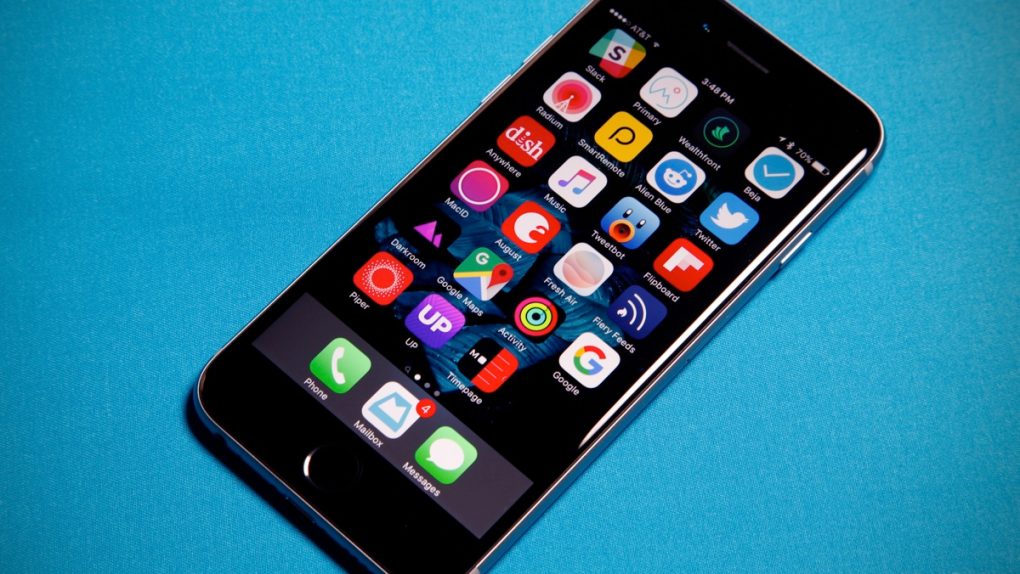Try though I might, there’s simply no way I can ditch my iPhone and switch to Android. Why? Because the software experience on Apple’s iPhones is just too good for Android to touch. Third-party apps on the iPhone look better and perform better than they do on Android, and when it comes to the smartphone user experience, third-party apps are everything.
And interestingly, one of the best third-party iOS app developers in the world is none other than Apple’s top platform rival, Google.
DON’T MISS: The 5 biggest ways Captain America: Civil War failed
I have a dream. In a perfect world, Google would take over my iPhone almost entirely. I wrote about why in a post published just over a year ago. I have fully embraced Google’s service ecosystem and my life is better off for it.
No! Google is evil! Advertising! Your data!
As it so happens, I’m a huge fan of how “evil” Google is. Thank you, Google, for being so evil. I want Google to have all my data, I want Google to keep protecting that data, and I want Google to keep making my life easier by using that data. Go ahead, serve me all the ads you want in the process. Google’s ecosystem is more than worth it.
Moving back on topic, Google’s iOS apps are fantastic. They don’t offer the same deep platform integration that they do on Android, but they still offer great functionality and terrific design.
I don’t even use Safari anymore unless a link I tap in an app opens Apple’s browser instead of an in-built browser. Instead, I use the Google app, which packs a web browser, Google search and Google Now into a single lightning-fast app. I also use Google Maps, Waze, Google Play Music, Google Drive and so many more Google apps.
Then Google released a brand new app last week that no one saw coming and it instantly became one of my favorites. Gboard, which you’ve no doubt read about to some extent at this point, is a new keyboard app for iOS that integrates Google search. It’s awesome… in theory. In practice, Gboard is completely ruined by issues with Apple’s third-party keyboard support, which is still a huge pain point for Apple.
Third-party keyboards are huge. Users love them and people couldn’t have been more excited when Apple added third-party keyboard support in iOS 8. iPhone and iPad owners could finally swipe to their hearts’ content and access GIFs in the blink of an eye. There was just one problem: Apple’s third-party keyboard support is still horribly inconsistent and unstable to this day.
Apple often takes a bit of time to get things right; iCloud is great, for example, but it began life as MobileMe. In the case of third-party keyboards though, I’m not seeing any progress at all. I ditched them shortly after iOS 8 launched because Apple’s implementation was so bad, and Gboard is the first keyboard I’ve seen that gave be a reason to try again. Incredibly, the situation is just as bad now as it was then.
Apple’s default iOS keyboard is silky smooth, like most of iOS. It’s fast and it’s consistent. Switch to a third-party keyboard like Gboard though, and you never know what you’re going to get.
Sometimes there’s lag while you’re typing. Sometimes there’s lag when you tap a text field, so you have to wait a beat or two before the keyboard appears. Sometimes you open an app and iOS randomly switches back to the default keyboard, forcing you to cycle through all your enabled keyboards until you get back to the one you want. And third-party keyboards can’t even be used on certain screens, so the experience is made even less consistent.
There are a bunch of other annoying little irregularities with Apple’s third-party keyboard support, and all these issues combine to ruin the user experience. On a platform as smooth as iOS generally is — especially on powerful phones like my iPhone 6s — issues like the company’s shoddy third-party keyboard support stick out like a sore thumb.
It’s a shame, really. Google’s Gboard keyboard is a fantastic offering and I would love to switch to it and further realize my dream of having Google take over my iPhone. Sadly, iOS makes using third-party keyboards impossible for anyone looking for a smooth and stable user experience, which is typically an area where Apple shines.








